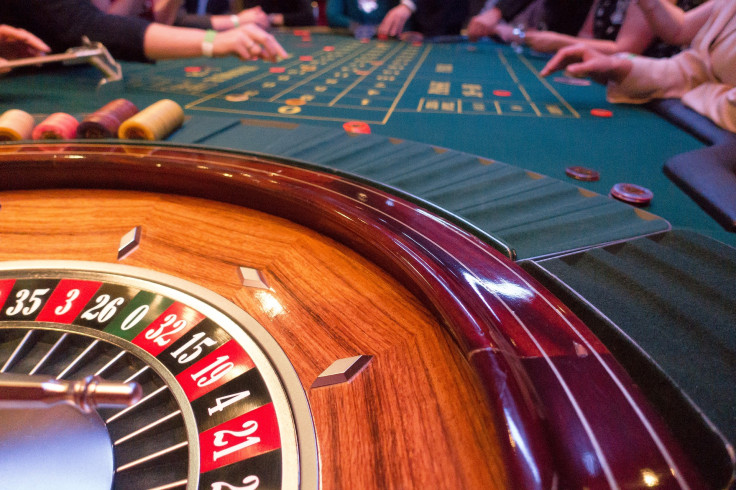Finland Allows Traveling Abroad but Keeps Casinos Shut
As countries have been lifting the national lockdown, the United Kingdom has just imposed a new restriction on arrivals from abroad. Designed to help keep coronavirus in check, the new quarantine rule requires everyone arriving to Britain from other countries, excluding Ireland, to retreat into self-isolations for two weeks. While Conservative Prime Minister Boris Johnson views the new law in a positive light, convinced that it will prevent the uncontrolled spread of the virus, others voice disapproval. Airlines are particularly angry and threaten legal actions, saying that the quarantine rule will dissuade people from travelling to the United Kingdom, since nobody will want to be locked at home while on vacation in the foreign country. The restriction on arrivals will hurt the air travel industry, whose revenue had significantly been reduced during the national lockdown. Analysts predicted in March that the coronavirus pandemic would lead to $252 billion (£211 billion) decline in the industry's revenue. After the restriction on arrivals is enacted, the drop in revenue might be even steeper. Other people regard the law as irrational: the majority of the countries, save the United States and Latin America, where fatalities are surging, have a far lower death toll than it is in Britain.

British people themselves might be subjected to quarantine restrictions when arriving to certain countries, but this depends on the United Kingdom airport from which they depart. The European Union Aviation Safety Agency (EASA) have compiled a list of high-risk UK airports, though it does not advise countries to discriminate between arriving people according to the place of their departure. It has blacklisted 13 UK airports, but the country's regional airports such as Belfast, Aberdeen, Southampton, Cardiff, Edinburg, and Bristol have been excluded from it. Some countries have, however, ignored the EASA's warning about discriminating between arriving tourists based on its list. The Greek government announced on Monday that Britons travelling from airports on the EASA list would carefully be tested and would be isolated for 14 days, if they test positive, and for 7 days, if they are healthy.
Other countries are less concerned with the EASA list and are gradually opening their borders. On the 3rd of June, all Italian airports reopened, as did all its borders in general. Italy allows unrestricted travel to and from all European Union countries and does not intent to impose any quarantine measures on arriving tourists. Alitalia has also resumed its direct flights between Rome and New York, together with all flights to Spain. To promote the healing of the tourist sector weakened during the coronavirus pandemic, the Italian government has allocated to it €4 billion and has assured Italian citizens that they would have pleasant holidays this summer not only in Italy but also abroad.
Finavia, Finnish airport operator, announced in May that it would start lifting restrictions imposed during the coronavirus pandemic. Now Finnish people can go on business trips to the countries belonging to the Schengen area. Internal border controls will still be in place, however, till the middle of June. There will also remain restrictions for travelling outside the Schengen area. To keep coronavirus at bay, the Finnish government requires passengers and airport employees to wear masks or face shields, keep physical distancing, and wash hands in sanitizers available in the airport.
Along with lifting restrictions for flights, the Finnish government also eased its national lockdown in other areas of life at the beginning of the month. Finns are now allowed to congregate in groups of 50 people outdoors, borrow books from libraries, watch sporting events at the stadium, and go to swimming pools and fitness clubs. They can also spend their free time in restaurants, bars, cinemas, and bars. What are they are still forbidden to do, however, is to gamble in land-based casinos, or, as they call them in Finnish, "casinot." Veikkaus, the Finnish government-owned casino agency, shut down its land-based casinos, Feel Vegas premises, and ubiquitous slot machines in March, when coronavirus began to rage in the country. The agency then also suspended lotteries and cancelled all planned events it usually organizes in casinos. Raffle draws were also put on hold. Disinclined to disappoint Finnish gamblers, Veikkaus invited them to bet online, promising them lucrative bonuses and a wide range of casino games.
Unlike American casino providers who are reopening land-based casinos across the country, Finland still keeps them shut. Like Canadian casino operators, Finnish Veikkaus understands that casinos are the breeding ground of bacteria and might lead to the worsening of the health situation in the country. Doctors warn the government that by lifting restrictions in June, it has risked to invite the second wave of coronavirus and increase the number of the infected cases by 40 percent. Opening casinos would only exacerbate the health problem in Finland. Casino Helsinki and Feel Vegas premises would also need to adapt to so many quarantine restrictions in order to rein in the spread of the virus that reopening them at the moment, when chances of the second wave of coronavirus are strong, might not prove viable.
© Copyright IBTimes 2024. All rights reserved.





